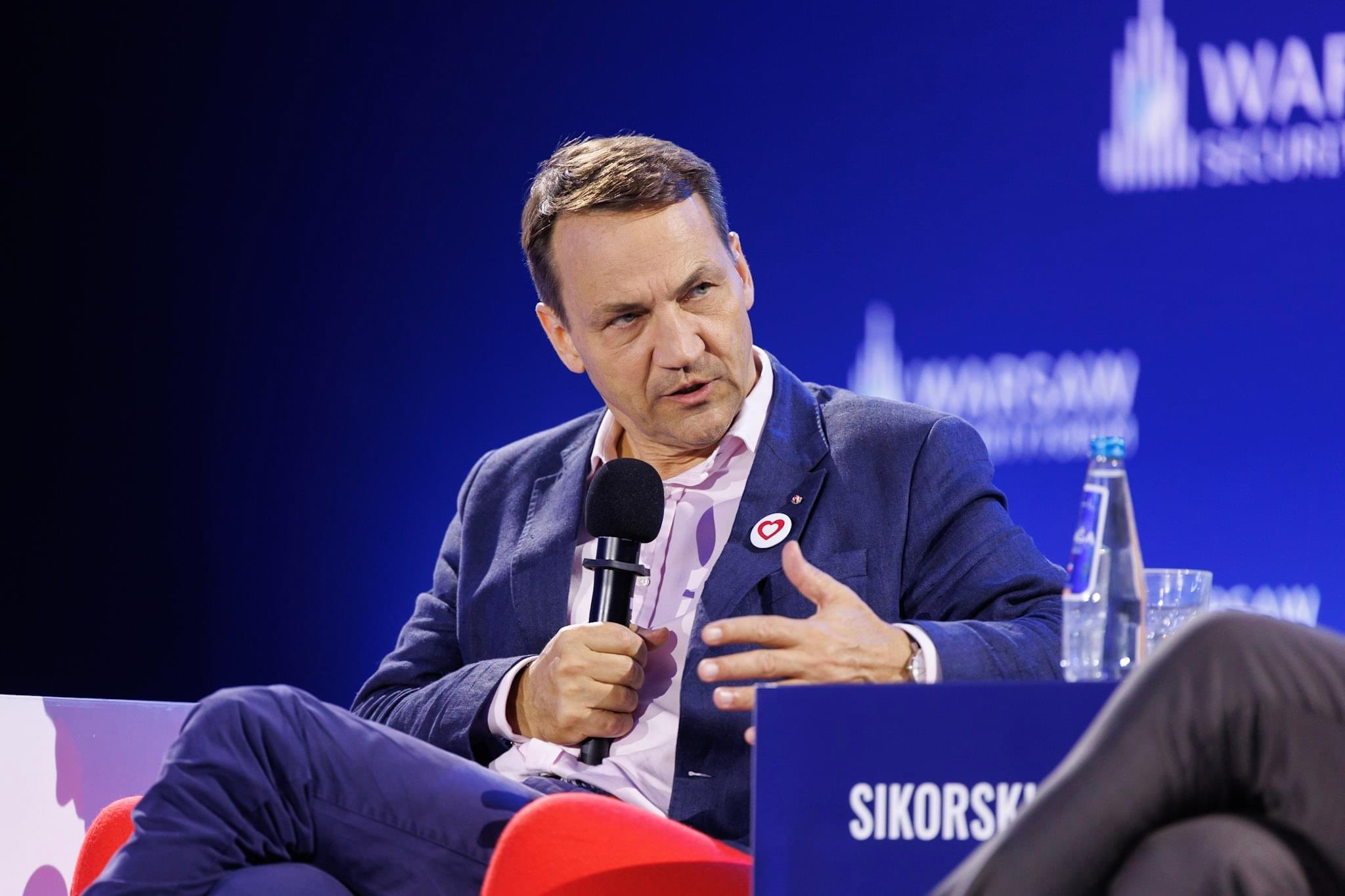Poland’s foreign minister Radoslaw Sikorski has characterized Russia’s drone incursion into Polish airspace as a calculated test by the Kremlin to measure NATO’s response through incremental escalations without triggering full-scale war.
Radosław Sikorski confirmed that while the drones entering Poland carried no explosives, they were capable of bearing ammunition. “Interestingly, they were all duds, which suggests to me that Russia tried to test us without starting a war,” Sikorski told the Guardian in Kyiv.
The incursion occurred during Russia’s massive 10 September assault on Ukraine, when Moscow launched over 400 drones and more than 40 cruise and ballistic missiles. Nineteen Russian drones crossed into Polish territory, flying directly from Belarus rather than straying from Ukraine operations.
Poland scrambled F-35s and F-16s in response, marking the first time Polish forces deployed airborne weapons against unmanned vehicles. Despite aircraft deployment, Polish forces intercepted only three or four of the 19 drones, with some traveling hundreds of miles into Polish territory.
Sikorski dismissed suggestions that Polish air defenses were unprepared for the incursion. “The drones didn’t reach their targets and there was minor damage to property, nobody was hurt. If it happened in Ukraine, by Ukrainian definitions, that would be regarded as a 100% success,” he said.
The incident triggered NATO’s Article 4, requiring member states to consult when any ally faces threats to territorial integrity. However, NATO decided not to treat the deliberate drone incursion as an attack. The alliance announced Friday it would deploy more jets to the eastern flank to protect against future drone attacks.
Romania became the second NATO member to report a Russian drone incursion within days, scrambling two F-16 fighter jets Saturday to monitor the situation. The country’s defense ministry condemned Russia’s actions, with EU foreign policy chief Kaja Kallas describing them as unacceptable.
Romania summoned Moscow’s ambassador Vladimir Lipaev to protest what it called an “unacceptable and irresponsible act, which constitutes a violation of sovereignty.” The foreign ministry stated that “such recurring incidents contribute to the escalation and amplification of threats to regional security.”
Germany’s foreign minister Johann Wadephul called the Romanian incident “yet another unacceptable violation of the sovereignty of a close partner in the EU and Nato.”
Sikorski said Poland’s response would have been “much tougher” if the attack had caused injuries or deaths, though he declined to elaborate on future scenarios.
The Polish foreign minister rejected suggestions by Donald Trump that the incursion “could have been a mistake,” citing the scale of the operation.
“You can believe that one or two veer off target, but 19 mistakes in one night, over seven hours, sorry, I don’t believe it,” he said.
Prime Minister Donald Tusk said the incursion brought Poland closer to military war “than at any time since the second world war.”
Polish anti-drone teams will receive training from Ukrainian operators to defend against future attacks, Sikorski announced.
Training will occur at a NATO center in Poland rather than Ukraine for safety reasons. “This is something that the public and the governments in the west need urgently to integrate in their thinking … that it is the Ukrainians who will be training us how to stand up to Russia, not the other way around,” Sikorski added.
At a Kyiv conference, Trump’s Ukraine envoy Keith Kellogg said the US president was becoming “exasperated” with Putin but cautioned European leaders not to push Trump too hard. “One thing I would advise anyone who is working with President Trump – do not put him in a position where he thinks he’s being used, that is probably the worst place you can be with him,” Kellogg said.
Sikorski expressed hope Trump would receive the Nobel peace prize if he achieved “a fair peace” involving “Ukraine within defensible borders and a Ukraine that is integrating with the west.”
Twenty-six countries pledged at a Paris meeting to contribute to a postwar security mission for Ukraine, with some offering ground troops. European countries have discussed providing Ukraine “article 5-like” guarantees after a peace settlement to prevent future Russian attacks.
However, Sikorski warned against unrealistic security guarantees.
“Security guarantees are meant to deter a potential adversary … So what we are saying is that if there is some kind of peace, the next time Russia tries anything against Ukraine, we might go to war with Russia. Now I find that not very credible. Because if you want to go war with Russia, you can do it today and I see no volunteers. And there is nothing more dangerous in international relations than giving a guarantee that is not credible,” he said.




